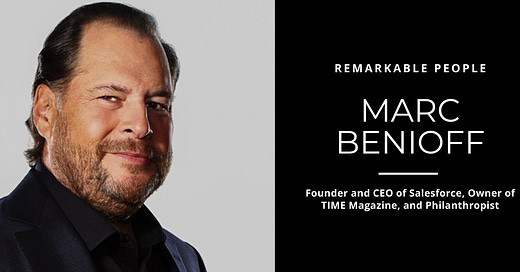The First Salesperson of Your Company
Who should be the first salesperson of your company and why?
I want to start by describing the profile of the CEO of a B2B company. He's a technical genius and holds a couple of patents. He possesses deep-tech expertise. His growth philosophy is based on technical excellence and operational efficiency. Unfortunately, ever since he took over, the company hasn't seen a big break. They have been lurking below their competitors in spite of superior technology. He grills his BD team day in and day out.
It seems like his strategic focus on technical innovation and internal efficiency underscores a potential disconnect with external market dynamics and client needs.
But the real problem is something else. It's his mindset. He doesn't believe that he is the "First Salesperson of his Company". In fact, he doesn't believe he is accountable for sales. He hardly engages with clients or prospects. Instead, he prefers to delegate client interactions to his BD team. Of course, he reviews them a lot, but he never picks up the phone and talks to a client. Neither does he voluntarily schedule visits to clients. His philosophy is that if there is a problem with clients, bring it to me. Yes, he digs deep and spends hours on technical reviews when a client complains. In fact, he tells his clients, "I'm available 24x7. Call me any time!" Clients do call him to escalate, and they fire him, and he's always on the receiving end. Going by the Pavlovian principle of classic conditioning, every time the client calls, he's stressed and passes it all down the line.
We consider the head of any country to be the first among equals, the first citizen. The CEO of any organization is the First Salesperson of that Company. This is even more pertinent for B2B, as sales and marketing are largely a matter of human-to-human connection.
First Salesperson of that Company - Exemplars
On the contrary, let's consider the leadership style of Marc Benioff, co-founder of Salesforce. He is known for his hands-on approach to sales and marketing and for actively engaging with customers. In one instance, when a major potential client expressed doubts about the security and reliability of Salesforce’s cloud platform, Benioff didn’t just rely on his sales team to address the concerns. Instead, he personally met with the client’s executives, listened to their concerns, and provided detailed explanations about the robustness of Salesforce’s infrastructure and the benefits of moving to a cloud-based CRM system.
Marc Benioff’s hands-on approach to sales, his persistence in overcoming challenges, and his growth mindset pushed the boundaries of not only his company but the tech industry as a whole. Under Benioff’s leadership, Salesforce introduced the concept of subscription-based pricing for enterprise software, which departed from the traditional perpetual license model. This approach made enterprise-level CRM accessible to companies of all sizes, democratizing access to powerful business tools.
Benioff is not an exception. Larry Ellison, co-founder and former CEO of Oracle Corporation, was renowned for his aggressive sales tactics and direct involvement in major sales negotiations. In Oracle's early years, Ellison took on the role of chief salesman, leveraging his industry connections and technical expertise to win over large corporate clients for Oracle’s database solutions.
Benioff and Larry are exemplary examples of the first salespersons of their company.
Without the First Salesperson, a company suffers the following consequences:.
Brand Perception: A lack of sales focus can harm the company's reputation and brand perception, making it harder to attract and retain customers.
Weak Relationships: Strong customer relationships are crucial in B2B sales. If the CEO is not involved in or supportive of sales efforts, the company may fail to build and maintain strong customer relationships.
Low Motivation: Sales teams often look to the CEO for inspiration and leadership. If the CEO doesn’t prioritize sales, it can lead to low morale and motivation among sales personnel.
Competitive Disadvantage: Competitors with strong sales leadership will likely outperform a company with weak sales accountability, resulting in a loss of market share.
Ideal First Salesperson of a Company - What will he do?
Here are some things that the First Salesperson of a Company will do:
Take ownership and accountability for sales and marketing rather than delegating it to the BD head.
Active client engagement, such as regular and voluntary interactions with key stakeholders, rapport building and strategic conversations, visits, etc.
Excellent and grass-roots-level understanding of the strengths and weaknesses of the products and services of your organization vis-à-vis competition
Knowledge of market dynamics and nuisances
Active participation in sales processes such as marketing campaigns, lead generation, client presentations, negotiations, and onboarding
Good personal rapport with sales and marketing team members
As a simple rule, if the CEO of a B2B company spends more than 50% of his time on the above activities, there is nothing stopping their growth. But the unfortunate reality is that they spend time reviewing decks after decks, interviewing candidates for non-strategic positions, troubleshooting issues, and having hours of board room discussions about various strategies.
Here’s what we do with Sales Transformation for B2B companies.
Over to you: what are your views?
If you are interested to know more, you can also contact us at Business.Support@collaborat.com.
Read More
Read past issues of this fortnightly editorial here.
As always, happy to hear your views in the comments.





